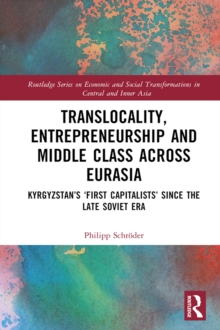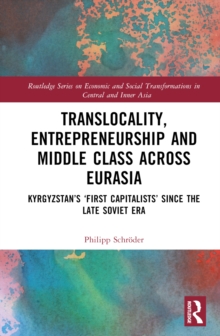
Qazaq Pastoralists in Western Mongolia : Institutional Change, Economic Diversification and Social Stratification EPUB
by Peter Finke
Part of the Routledge Series on Economic and Social Transformations in Central and Inner Asia series
EPUB
Description
Taking the case of Qazaq Pastoralists in Western Mongolia, this book looks at the universal human requirement to balance individual flexibility and strategies designed to make a living with the social expectations that impose particular rules of conduct but also enable mutual trust and cooperation to emerge.
Pastoralists in Western Mongolia have experienced dramatic changes in recent decades, including the dismantling of the socialist economy, a series of natural disasters, and an emigration of roughly half of the local Qazaq minority to the newly independent state of Qazaqstan. Four aspects illustrate the chances and challenges that people face. First is the emergence of the market as the dominant mode of production and exchange, a thorny way full of uncertainties. Second is the individual household and its adaptation to the new economic system, creating new opportunities as well as precarities, and resulting in rapid social stratification. Thirdly, patterns of pastoral land allocation highlight problems of collective action and institutional fragmentation in the wake of a retreating state apparatus. Finally, social networks of mutual support and cooperation constitute a key component of pastoral livelihood but are under great pressure due to short time horizons and a lack of trust.
The first longitudinal analysis of the Qazaqs in Mongolia in English and a contribution to anthropological theories on human adaptability and decision-making, economic and social inequalities, institutional change and the difficulty of deriving at cooperative solutions, this book will be a standard work and of interest to academics in the field of Central Asian Studies, Anthropology, Human Geography and Development Studies.
Information
-
Download - Immediately Available
- Format:EPUB
- Pages:256 pages
- Publisher:Taylor & Francis
- Publication Date:31/08/2023
- Category:
- ISBN:9781000721584
Other Formats
- PDF from £35.99
Information
-
Download - Immediately Available
- Format:EPUB
- Pages:256 pages
- Publisher:Taylor & Francis
- Publication Date:31/08/2023
- Category:
- ISBN:9781000721584










